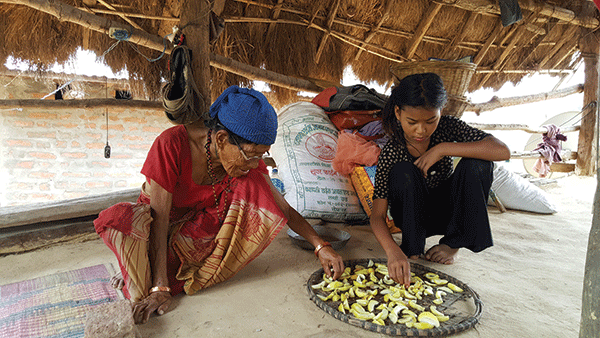Each of us has a moral duty to dispose garbage in a responsible manner so as to teach future generations about the importance of protecting the environment in which we live.
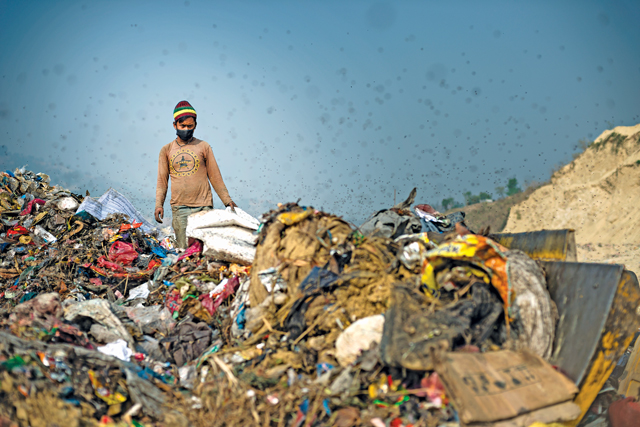 Nowadays, one of the major common worldwide problems is the accumulation and disposal of waste. Due to the rampant growth of world population, this problem is becoming increasingly difficult to control, and needs careful planning to solve it. In Nepal, especially in Kathmandu Valley, this issue is constantly on view everywhere, from city streets to rivers, from the hills to surrounding villages. More and more people living in small villages are moving to Kathmandu, attracted by job prospects and the many opportunities it offers, in the process, increasing the volume of waste that every day must be discarded.
Nowadays, one of the major common worldwide problems is the accumulation and disposal of waste. Due to the rampant growth of world population, this problem is becoming increasingly difficult to control, and needs careful planning to solve it. In Nepal, especially in Kathmandu Valley, this issue is constantly on view everywhere, from city streets to rivers, from the hills to surrounding villages. More and more people living in small villages are moving to Kathmandu, attracted by job prospects and the many opportunities it offers, in the process, increasing the volume of waste that every day must be discarded.
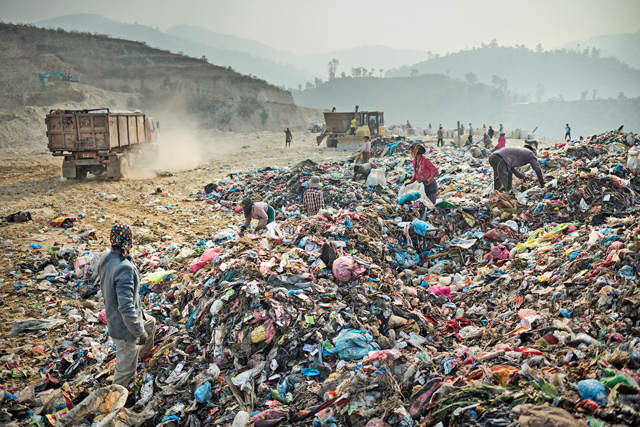 Kathmandu appears as one of the most polluted cities in the world, and this is due, in part, to the large number of cars, trucks, and motorcycles that every day cause clouds of gas and dust in the air. At the same time, this is also due to the lack of a stable and functioning project about waste management and its disposal.
Kathmandu appears as one of the most polluted cities in the world, and this is due, in part, to the large number of cars, trucks, and motorcycles that every day cause clouds of gas and dust in the air. At the same time, this is also due to the lack of a stable and functioning project about waste management and its disposal.
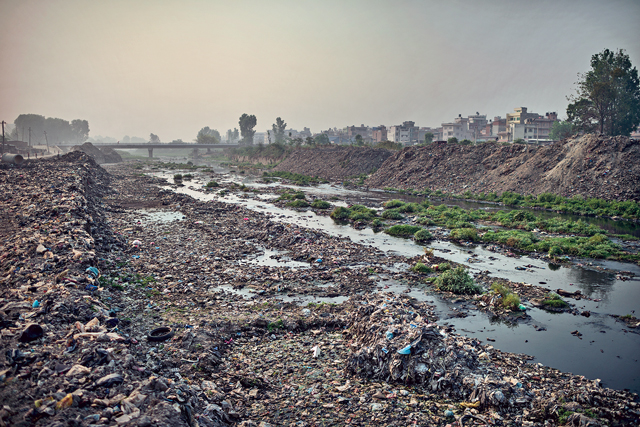 Every day, walking in any area, we can see how much this problem is real and how it touches us closely. On the streets, there is no sign of recycling bins. The existing garbage bins are jam-packed with rubbish, plastic bottles, and noodles packs, and unfortunately, the thing that makes us think is that now people are taking this situation as normal, as something that cannot be changed. Personally, I don’t think Kathmandu citizens like living surrounded by garbage; then, I wonder, why so few people really care about this issue? Instead of complaining about the inability of the government to deal with this situation, why aren’t each of us soul-searching and wondering what we can do ourselves to control it?
Every day, walking in any area, we can see how much this problem is real and how it touches us closely. On the streets, there is no sign of recycling bins. The existing garbage bins are jam-packed with rubbish, plastic bottles, and noodles packs, and unfortunately, the thing that makes us think is that now people are taking this situation as normal, as something that cannot be changed. Personally, I don’t think Kathmandu citizens like living surrounded by garbage; then, I wonder, why so few people really care about this issue? Instead of complaining about the inability of the government to deal with this situation, why aren’t each of us soul-searching and wondering what we can do ourselves to control it?
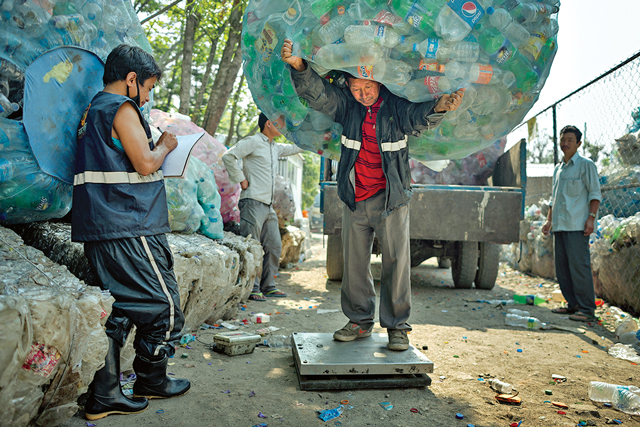
The risk of ignoring this issue is to find oneself inundated with mountains of trash that invite hygiene problems, aside from it affecting tourism and conservation and protection of world heritage sites and protected areas that Nepal has in plenty. Unfortunately, this problem is starting to appear not only in big cities, but also in the surrounding villages, which sometimes use the river as a dumping site, bringing together all the garbage to Kathmandu. To get an idea, more than 50% of the aquifers here are contaminated with sewage and others pollutants.
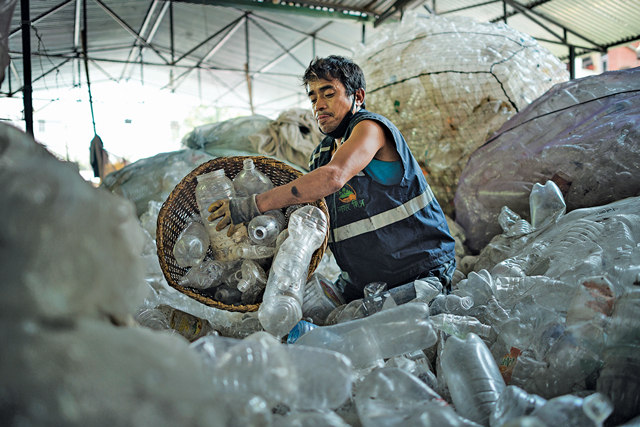
The constant increase of plastic used every day, from bottles to bags to packaging, unfortunately, doesn’t facilitate this situation, but rather, worsens it, because plastic is one of the most difficult elements to dispose of. On the opposite side of the coin, plastic is also one of the simplest materials to be recycled, just because its possible uses are very extensive.
One of the main problems is the lack of education and awareness on environmental protection that should be at the heart of every community. Obviously, if people aren’t educated, they will never know the seriousness, and neither how to stem this problem. One of the things that is most worrisome is the incredible business that is forming in the shadows. Everyone has seen the vast number of trucks full of junk of all kinds that roll along the streets of Kathmandu, but how many people are interested, or know, where this rubbish
is taken?
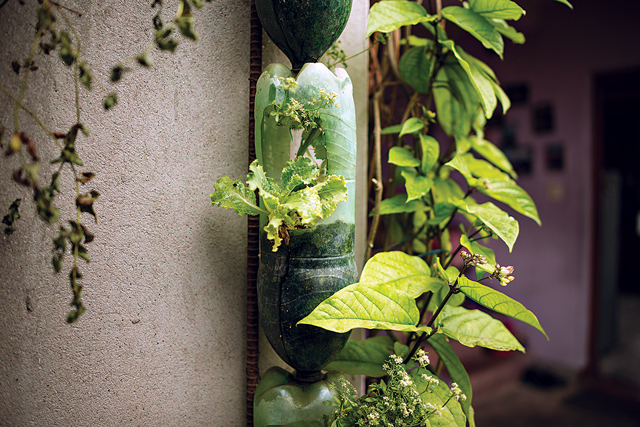
In Kathmandu, there are two routes for the disposal of waste: the first is simpler, but completely irresponsible; the second is much more aware and careful, which is luckily on a small growth path.
Analyzing the first method, very few people are accustomed to do recycling, and because of this, garbage of any kind is transported through the streets of the city every day. Municipal waste disposal workers and private companies load tricycles and small vans that are brought to segregation sites, where others are responsible for separating the different materials for recycling.
Once separated, these small vans are again loaded with non differentiable materials and taken to the transfer station, to be reloaded onto larger trucks that then move directly to the dumping site of Sisdol, where waste is accumulated. One of the problems is that, not all materials can be recycled, only organic waste is easily disposable, and since the separation of materials is not done properly, the Sisdol dump site has become a veritable mountain of wet non-biodegradable waste.
The Sisdol landfill is occupied by an army of individuals called waste-pickers, who rummage through garbage all day long, looking for materials or valuables to sell. Speaking of waste-pickers, the question arises: is it not better to be paid by the municipality or by private companies for the separation of waste, instead of rummaging through garbage all day? The answer is simple. Although municipalities and private companies offer, in addition to salary, a number of benefits like healthcare and incentives to send their children to school, waste-pickers, despite not having all these benefits, are earning a lot more tax-free money, and therefore they prefer to lead this lifestyle.
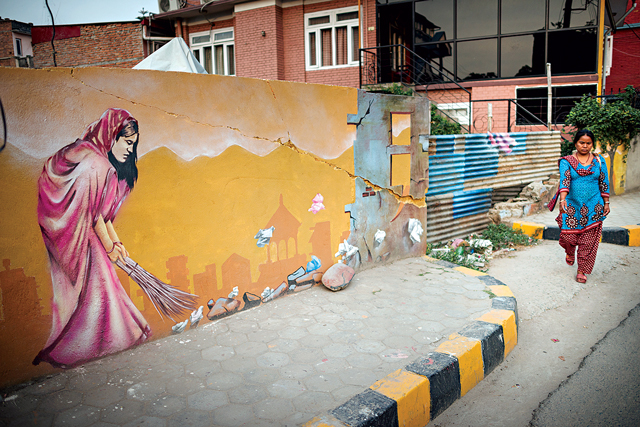 Another problem that occurs is the non-use of trucks and incinerators that have been donated for waste disposal. The use of these machines would create a conflict of interest that would completely reduce the importance of waste-pickers, and undermine the business related to resale of the collected materials. All this might suggest that this problem is without any hope, but instead, there is also another side of the same coin.
Another problem that occurs is the non-use of trucks and incinerators that have been donated for waste disposal. The use of these machines would create a conflict of interest that would completely reduce the importance of waste-pickers, and undermine the business related to resale of the collected materials. All this might suggest that this problem is without any hope, but instead, there is also another side of the same coin.
Aware of the magnitude of the problem that is being created, some private companies have begun to invest in raising awareness, disposal, and recycling, with great results. Regarding dry waste disposal, there are now some really neat plastic bottle recycling centers. Once the bottles are brought to the field office, they are first separated by color (white or green), then the labels and stoppers are removed before being pressed and packaged, ready to be taken to the recycling center.
Having partnership with hotels, restaurants, and residents of several neighborhoods, up to a ton of bottles per day can be collected, which are then sold in India. The same process could easily be applied also for paper, with which it is possible to produce various kinds of goods for daily usage. In addition, it is possible to produce bio-pressed paper that could replace gas in village homes.
As for wet waste, it is much more easily disposable, and its use can be manifold. Some private companies have begun to produce high quality compost, separating and collecting all the organic waste that can then be used for fertilizing fields, and creating rooftop gardens. Another use of wet waste may be the production of bio gas to power the kitchen in times of emergency, such as during the blockade imposed by India in the last few months.
Awareness-raising campaigns on the collection and separation of garbage, integrated with monitoring services that ensure that the whole process is carried out correctly, have also begun in various schools and communities. These services are extremely useful, because they make people aware of the problem that is being created, and give hope for a better future. Aware that this problem should not be underestimated, each of us has a moral duty to dispose garbage in a responsible manner, so as to teach future generations about the importance of protecting the environment in which we live.






